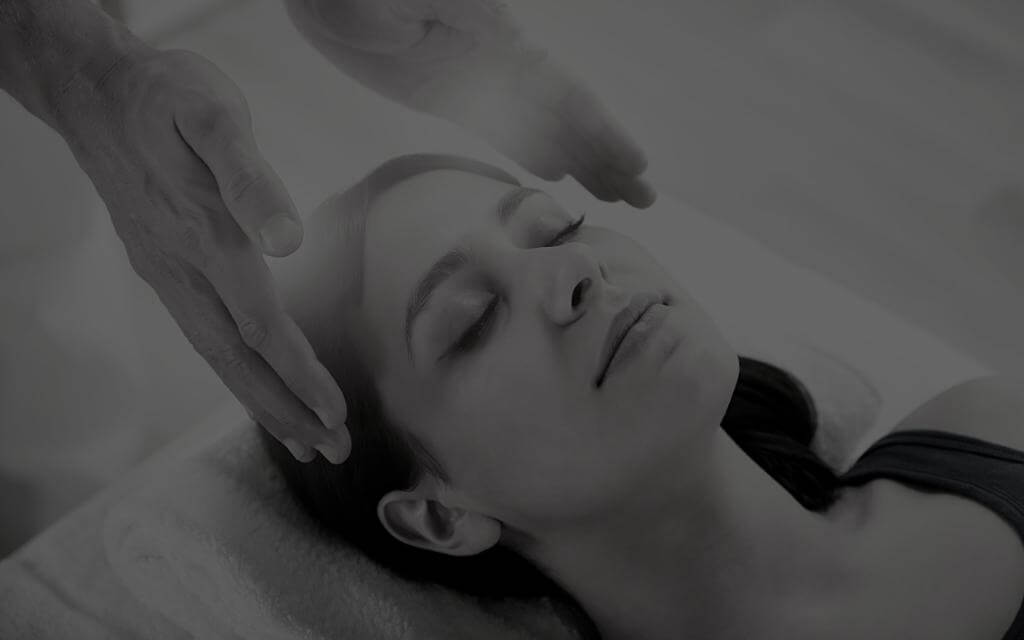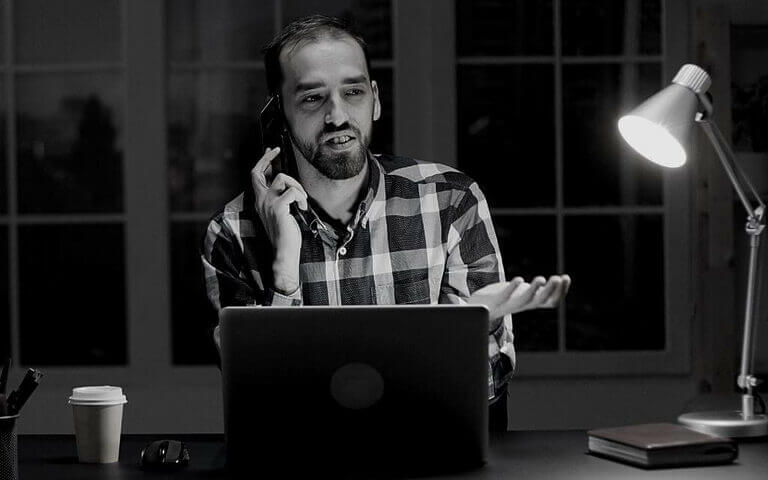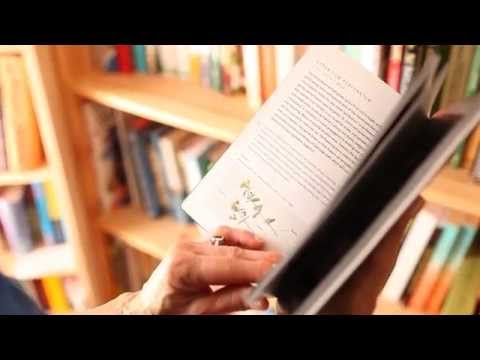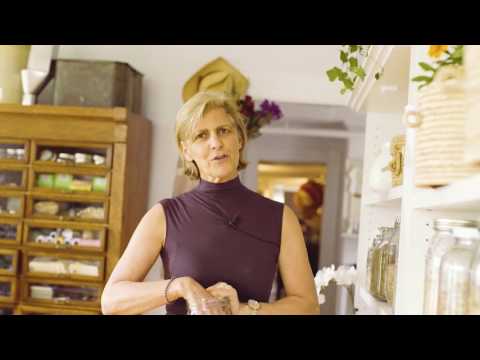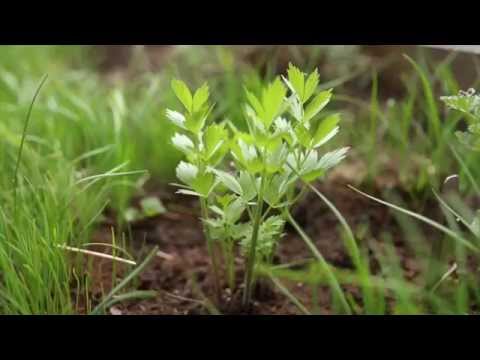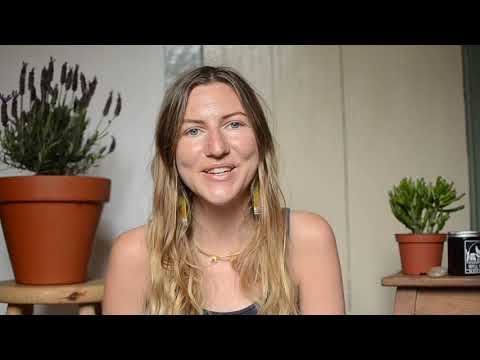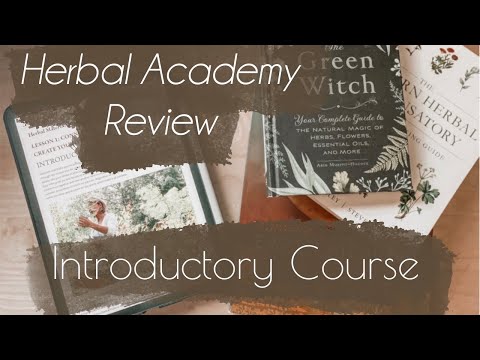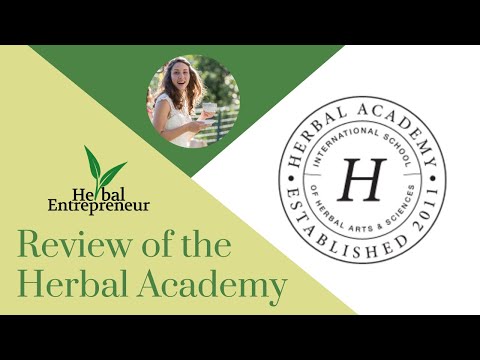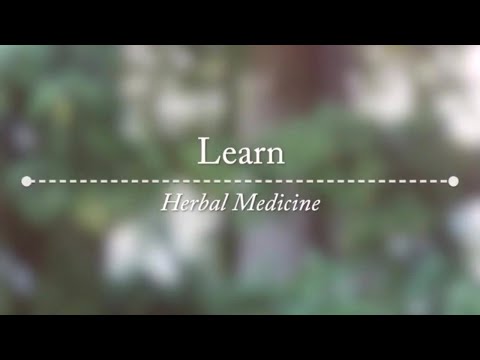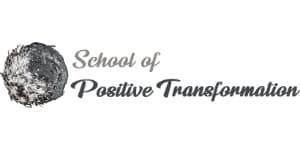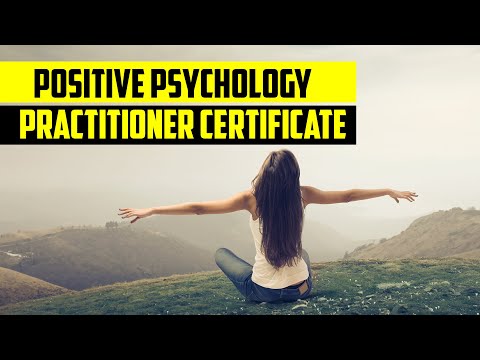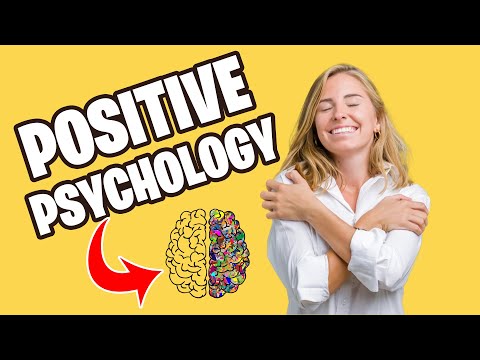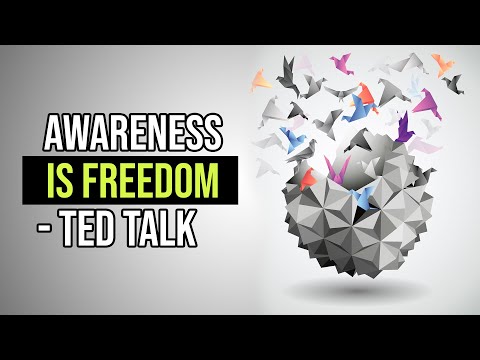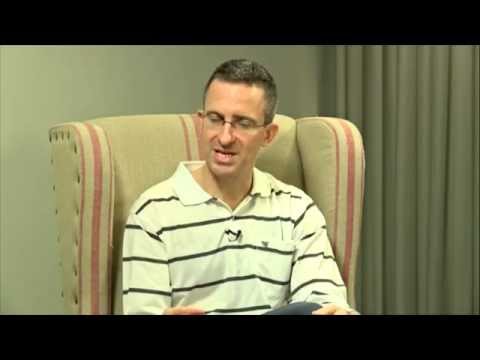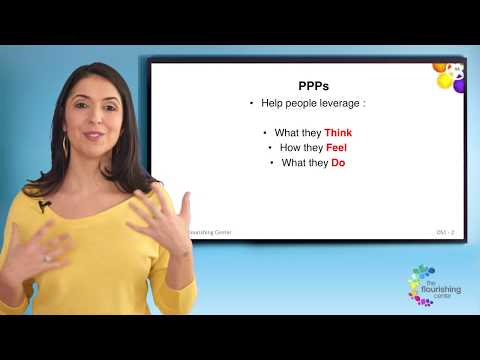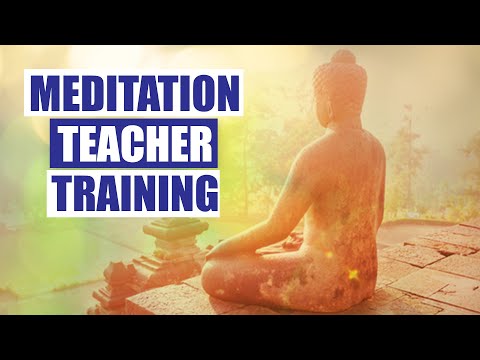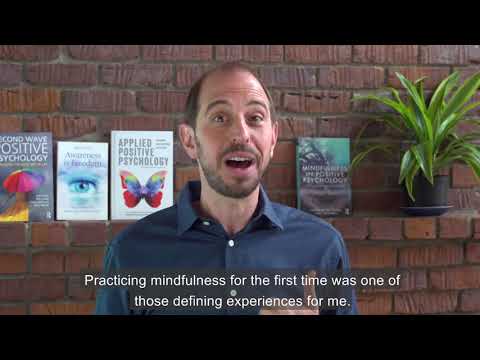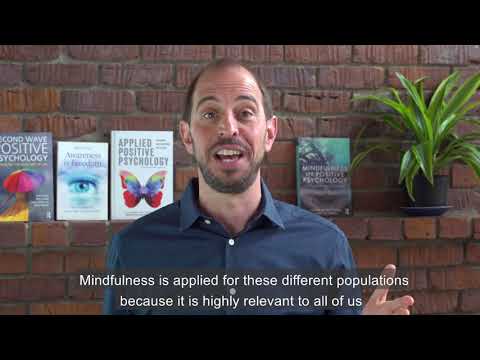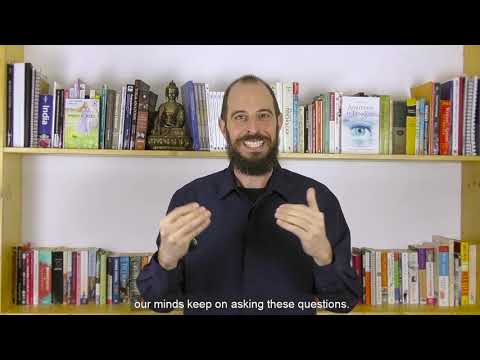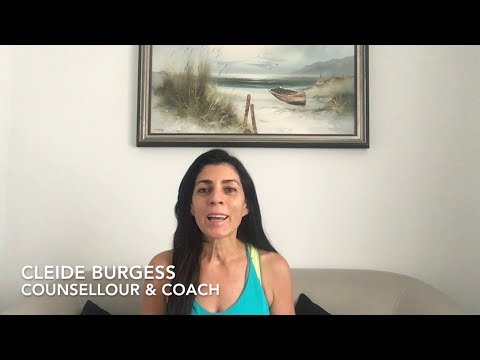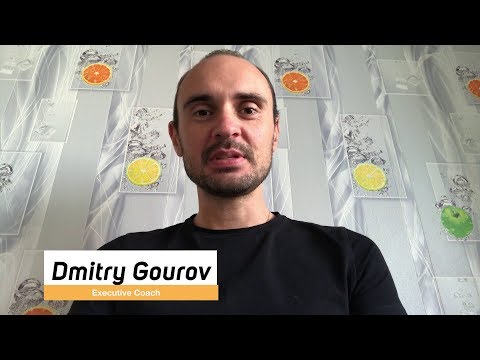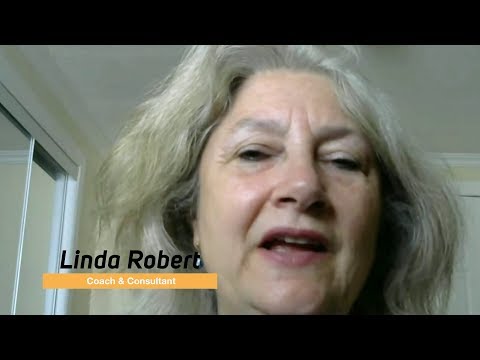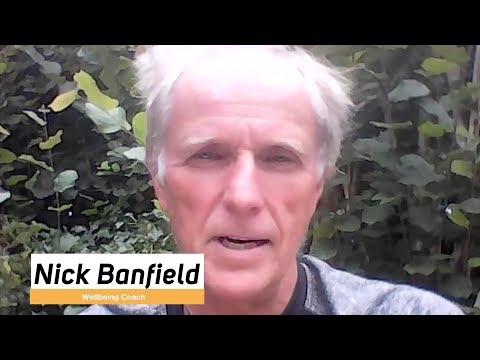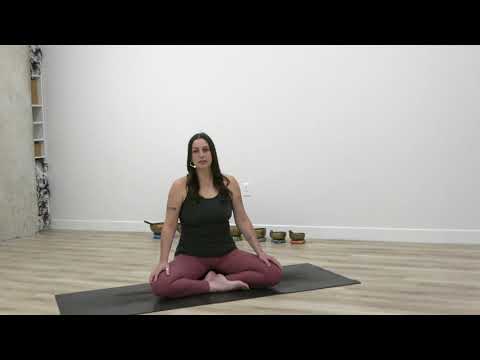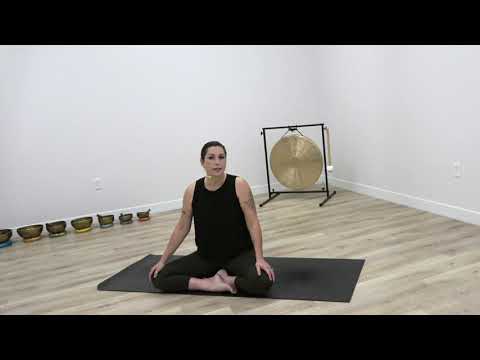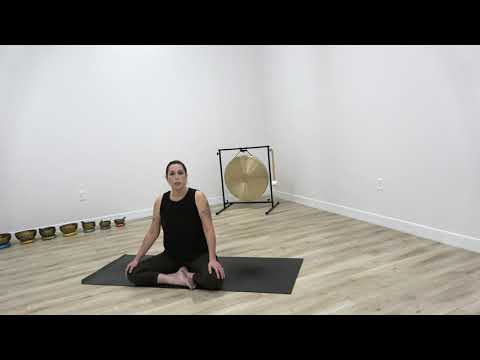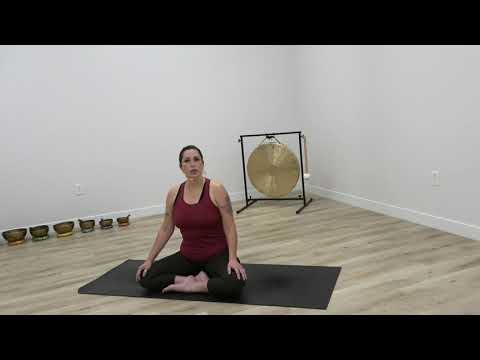Training Materials
- 40+ videos
- 30+ evidence-based guided meditation scripts
- 30+ exercises and activities, and downloadable audio meditations, handouts, and worksheets.
- These materials are divided into 30 teaching sessions, each session incorporates videos, exercises, and meditation practice.
- The sessions make a comprehensive course (see full curriculum below) and would offer you all that you need to deliver inspiring and responsible meditation sessions.
Positive Emotions and Love 2.0
This module not only showcases some of the latest scientific work in the field of positive psychology from my own and others’ laboratories, but it also highlights practical applications of this science that you can put to use immediately. Together we will “lift the hood” of positive psychology to discover the tiny engines that drive it. Positive emotions, often subtle and always fleeting, are remarkably consequential – psychologically, socially, and physically. Module topics include creativity and resilience, love and connection, flourishing, and physical health. By taking this module, you will become conversant with leading-edge theories and evidence directly from the PEP Lab (Positive Emotions and Psychophysiology Laboratory), including work that measures the benefits of positive emotions for your heart and your immune system.
Session 1: Positive Emotions
This session will introduce you to the science of emotions, ten distinct positive emotions, and the Broaden-and-Build Theory of positive emotions. You will encounter evidence that supports the role of positive emotions in expanded awareness, flexible and creative thinking, resilience, and trajectories of personal growth.
Session 2: Positive Connections
This session will introduce you to the science of high-quality social connections and Positivity Resonance Theory. You will encounter evidence that underscores the impact of shared positive emotions, mutual care and concern, and the behavioral and biological synchrony of relationship quality with both mental and physical health.
Session 3: Upward Spiral of Lifestyle Change
This session will introduce you to the science of behavior change and the Upward Spiral Theory of Lifestyle Change. You will encounter evidence that underscores the centrality of emotions and nonconscious motives in driving behavioral changes that have lasting benefits for well-being.
The Power of Character Strengths
You are a person of character. In fact, each of us is. Modern research shows that you have within you, to varying degrees, 24 strengths of character that make you “uniquely you.” These strengths include bravery, curiosity, gratitude, fairness, love, perseverance, self-regulation, and hope, to name a few. Imagine that! You have all of these qualities of goodness and strength within you. Some of these strengths may have already developed and flowered within you, and
you are now expressing them strongly in your work and in your relationships. Other strengths may be dormant, waiting for you to notice them or to refocus your attention upon them. However, some strengths may have never gotten any deliberate attention from you and are now wilting away.
Hundreds of research studies over the last few years have uncovered the many benefits associated with the character strengths such as resilience, life meaning, work productivity, stronger relationships, better health, less depression and stress, and greater happiness.
This module will help you understand what character strengths are, how they differ from other kinds of strengths such as your abilities, skills, and interests, and how to develop them to make the most of your life. There will be an emphasis on offering highly practical tools, grounded in science, that can be used immediately.
Session 1: What are Strengths, Why Do They Matter, and How Do You Use Them?
Your character strengths are at the center of your identity. They give you an immediate answer to life’s complex question: Who are you? They help you to not only understand yourself but to express yourself fully and authentically in your relationships, work, and community. We will explore how all of us can begin to challenge our negative mindset, overcome many of our blind spots, and begin using our best qualities to create an optimal life.
To get the most out of this session (and those that follow), it is recommended you take the free, validated VIA Survey that measures your character strengths. This is widely considered the most popular and useful test in the field of positive psychology. It will take you approximately 15 minutes to complete and can be found at www.viacharacter.org
Session 2: Your Unique Signature Strengths
One of the strongest activities that exist in the field of positive psychology involves the awareness and use of your highest character strengths, also referred to as signature strengths. Using your best qualities in a thoughtful way has been shown to boost happiness and decrease depression. This session will help you understand and appreciate your signature strengths. Part of the focus will be on how to develop a “strengths practice” in your life.
Session 3: Character Strengths – Your Pathway to Fulfilment and Well-Being
Character strengths can be developed. We will bring this new research discovery to life by exploring the many ways you can use your 24 strengths. A handful of strengths have also been shown to be particularly connected with happiness and others with fostering positive relationships. We will explore some of these strengths and offer tips for implementing them in your daily life
Positive Education: Transforming Children, Parents, and Schools
Positive education is an applied science that weaves contemporary research from positive psychology into educational practice with the aim of supporting student wellbeing. Join me for this module to explore the growth of both science and practice in positive education. We will explore how this field is spreading across the world and will discuss and practice three distinct PPIs (Positive Psychology Interventions) that are having a positive impact on student wellbeing and academic outcomes: gratitude, mindfulness, and strengths. Importantly, we will consider the ways in which these three PPIs can support the mental health and relational wellbeing of teachers and school leaders.
Session one: Introduction to Positive Education
Although school-based mental health interventions have existed since the early 1930s, the newer field of positive education has extended the aims of such interventions beyond the reaction and prevention of ill-being (e.g., reducing student stress, bullying, and anger management) to encompass the promotion and enhancement of wellbeing (e.g., building hope, pro-social skills, and happiness). This session will explore the broad range of factors that have fostered the
rise of positive education, including rising rates in youth mental illness across the globe, calls from international agencies for a broadening of the purpose of schools, and the evidence base showing a link between wellbeing and academic outcomes.
Session two: Bringing an Apple to School – The Power of Gratitude
Gratitude refers to our ability to notice and appreciate the good things in life. Cicero (106-43BC) is quoted as saying “Gratitude is not only the greatest of all virtues but the parent of all virtues.” Two decades of research have shown that gratitude boosts the wellbeing of both the giver and receiver of gratitude and helps to build happy, supportive relationships. Research also shows that gratitude can be cultivated through practice which makes it ideal for teaching in schools. In this session, we will explore the implementation of gratitude-PPIs in schools and review concrete examples of how schools are supporting students, teachers, and leaders to develop ‘an attitude of gratitude.
Session three: Teaching Stillness in Schools – The Role of Mindfulness and Meditation
Schools are busy, stressful places where positive education is making inroads through the teaching of mindfulness and meditation techniques (e.g., transcendental meditation, Tai chi, yoga). Mindfulness is defined by John Kabat-Zinn as a state of present-moment awareness that emerges through paying deliberate attention, without judgment, to one’s moment-by-moment experiences. Teachers have observed that, after practicing mindfulness, students are more relaxed and settled in classes that foster a positive classroom environment. Students themselves report reductions in stress after engaging in mindfulness or meditation. In addition to the benefits for well-being, some research has also shown that teaching mindfulness and meditation to students enhance pro-social
skills and compassion for others. However, although research has shown a positive link between mindfulness and academic outcomes, the overall evidence is inconclusive and further research needs to be conducted.
Resilience and Post-traumatic Growth: Pathways to Success When Facing Adversity
Our resilience is far more than our ability to be a “rugged individual” with the right personal qualities who bounce back after adversity. It is just as much about being a “resourced individual” with the biological, psychological, social, and even physical supports we need to cope with crises when they occur. In this inspiring, story-filled, and research-based module, Dr. Ungar will explore the concepts of resilience and post-traumatic growth, borrowing from his latest book Change Your World: The Science of Resilience and the True Path to Success. Dr. Ungar will draw on examples from both his clinical work and research around the world to show that the processes of navigation and negotiation are at the heart of resilience. He will explain how we can improve our lives and find more meaning through the everyday heroics of coping with complex stressors while making use of 12 factors that are critical to success. Integrating the latest research from studies of positive development, mindfulness, and other aspects of personal development, along with studies of the social and physical determinants of well-being, Dr. Ungar will offer a culturally sensitive interpretation of what resilience means to people from diverse backgrounds living in diverse communities.
Session 1: What is Resilience? Maintaining Our Capacity to Cope During Times of Change and Challenge
Which factors matter most to coping under stress always depends on the kind of stress we experience and the quality of the personal, social, and physical resources that we have available. In this humorous and thought-provoking session, Dr. Ungar explores the meaning of resilience and how the concept can be used to improve our lives. He explains resilience as the dual processes of navigation to a dozen resources we need to succeed, and our ability to negotiate for these resources to be provided to us in ways that we experience as most helpful. A number of innovative strategies to improve resilience will also be shared that can be used at home, in our workplaces, and in our communities.
Session 2: What is Post-traumatic Growth? The Potential for Traumatic Events to Produce a Meaningful Life
Many individuals not only cope well with complex stressors but also find through the experience opportunities for growth. While exposure to potentially traumatizing events can be debilitating, burdening us emotionally and preventing optimal physical and mental functioning, there are many examples of people showing post-traumatic growth (PTG) who have used negative life experiences to find meaning through the heroics of everyday living. Using examples of individuals who have successfully coped with trauma, and the research on both post-traumatic stress disorder (PTSD) and PTG, Dr. Ungar will discuss PTG as one of seven ways individuals adapt to adversity, whether acute or chronic and the resources required to support people to learn from their pasts and realize their potential.
Session 3: Helping those Who Help Nurture and Maintain Their Resilience
Sustaining our resilience as professional helpers can be a challenge during times of change. This lecture shifts the focus from helping others to building and maintaining the wellbeing of those whose jobs are emotionally and spiritually challenging. Strategies to avoid burnout and maintain a career and life resilience will be discussed that can be used when stressors pile up at home and at work. The twelve factors discussed in Session 1 will be revisited, this time in relation to their impact on the capacity of helpers to succeed and the culturally nuanced ways that each factor supports positive development. Finally, Dr. Ungar will talk about “vicarious resilience,” the positive impact we experience as helpers when we nurture resilience in others.
Happy Together: How Positive Psychology Can Help Improve Relationships
We will explore how the science of positive psychology can help us strengthen our relationships. While the concepts we discuss can be applied to all kinds of relationships —those with our friends, family members, significant others, and business colleagues — many of the examples we use will come from our work on romantic relationships.
The way relationships are often portrayed in popular culture does a disservice to many. For example, in fairy tales and films, lasting love seems to happen without any effort. However, in real life, research shows that it is healthy habits that lead to long-term love. In this module, based on our book, Happy Together, we will discuss how to practice using the principles of positive psychology to create thriving relationships. We will discuss the importance of finding and feeding the good in yourself and others rather than focusing on problems. In other words, we will focus on what is going well in your relationships, rather than on what is wrong. While sometimes it is necessary to work on fixing problems, many of us overwhelmingly focus our attention on avoiding and eradicating the things we do not like in others. We need to adopt a more balanced approach. It is equally as important to focus on seizing opportunities and cultivating what we do want in our relationships. In this module, you will develop key habits that will enable you to build stronger bonds and a love that lasts by learning the difference between a healthy and an unhealthy passion, understanding the importance of practicing positive emotions and savoring, and identifying your strengths and
those of your partner and applying them to your relationship.
Session 1: Is Love all you Need?
How do you get to live happily ever after? We will talk about the philosophy and psychology behind strong relationships and love that lasts. We will examine some of the characteristics of a healthy relationship. We will begin with ancient wisdom by discussing what Aristotle had to say about cultivating good friendships and how we can apply his ideas towards building a love that lasts. We will also talk about the importance of passion. Positive psychology research shows that is not just how much passion you have that is important but having the right kind. The wrong kind of passion can actually be damaging to
a relationship, whereas the right kind can help it to thrive. We will discuss how to identify and promote a healthy passion and explore fun ways to do so.
Session 2: The Importance of Practicing Positive Emotions & Slowing Down to Savor Experiences Together
We will discuss how positive emotions not only feel good, they are good. While some positive emotions are fleeting, they can have long-term consequences in our relationships by making us more resilient and open to new experiences. Positive emotions are not merely indicators that things are going well; they can also help us take actions that will enable the relationship to thrive. Most couples experience a high frequency of positive emotions early on in the romantic relationship but tend to experience fewer as their relationship develops. We will discuss ways to actively cultivate positive emotions in ourselves and towards our partners. Additionally, we will learn how to slow down to practice the science of savoring to help us leverage these uplifting moments and experiences in all our relationships.
Session 3: How Seeking out Strengths Together Can help us Stay Happy Together
Positive psychology researchers have identified twenty-four unique strengths that have been valued across time and cultures, including creativity, kindness, zest, and love of learning. We all have a fascinating configuration of strengths– which, along with our personalities, experiences, and upbringing, are part of what makes us unique. At the beginning of any relationship, it is easy to see strengths in one another. In fact, these strengths are often what initially attracts us to
that person. However, what begins as intriguing differences often seem to become annoying deficits as time passes. We will therefore emphasize the importance of remembering to see our friends and significant others through the lens of strengths. To do this, we will learn how to identify our strengths and those of others, and then practice using these in our relationships to build stronger bonds.
The Need for Altruism to Build a Happier Life and a Better World
Being motivated by altruism and compassion is the best way to accomplish a twofold benefit for others and for ourselves. On a personal level, this leads to a win-win situation. On a global level, altruism is the only unifying concept that allows the demands of short-term needs to be reconciled with the search for happiness and respect for future generations. Research in psychology has refuted the idea of a universal selfishness, while neuroscience has shown that compassion can be trained as a skill. The science of evolution is increasingly recognizing the importance of cooperation. There are ways to overcome contrary
forces (extreme individualism, narcissism, violence, etc.) and to bring about a more compassionate society through cooperative education, caring economics, sustainable harmony, and by increasing our consideration for other species and our environment.
Session 1: Altruism as a Win-Win Situation – From Personal Experience to a Global Level
We have an extraordinary potential for goodness, but also an immense power to do harm. Any tool can be used to build or to destroy: it all depends on our motivation. Therefore, it is all the more important to foster an altruistic rather than a selfish motivation. Thinking “me, me, me,” all day long makes one miserable and also makes everyone around us miserable. Conversely, altruistic love and compassion are well received by others and have also been found to be prominent among positive emotions. On a global level, we are facing immediate challenges to our ability to survive and prosper, middle-term challenges to our ability to flourish in life, and long-term challenges through the damage we are causing our environment, which will lead to great suffering among future generations. We will attempt to show that altruism (having more consideration for others) is the only concept that will enable civil society members, social workers, investors, politicians, and environmental scientists to sit around the same table and find ways to bring about a better world.
Session 2: In Which We Show That True Altruism exists and could be Enhanced.
There has long been an assumption in psychology, philosophy, economy, and evolutionary sciences that humans are essentially selfish. However, over the last twenty-five years, new research and insights have shown that genuine altruism does exist and can be extended beyond our kin through a sense of global concern and responsibility for our fellow human beings and for other species. Nevertheless, if we want altruism to play a major role in our lives, we must cultivate it individually while initiating changes in our cultures. Research in neuroscience has shown that training induces restructuring in the brain at both functional and structural levels. This is what happens when one develops altruistic love and compassion through training. Over generations, cultures, and individuals mutually influence each other. The evolution of culture is, however, faster than that of genes. One can thus conceive of a much-needed evolution towards more cooperative and altruistic societies.
Session 3: Dealing with Contrary Forces and Considering Solutions and Interventions.
To bring about a more compassionate society, we need to find proper antidotes to contrary forces such as excessive individualism, narcissism, devaluing others, instrumentalizing other species, violence, and institutionalized selfishness in corporations and institutions. This requires enhancing cooperation in all fields of life, including education, promoting “sustainable harmony”, and remaining within the planetary boundaries that allow humanity to safely prosper without being transformed into a hothouse. Altruism thus appears to be a factor determining the quality of our existence, now and in the future, and should not be relegated to the realm of noble utopian thinking. We must have the perspicacity to acknowledge this and the audacity to verbalize it.
Mindfulness in Positive Psychology: The Adventure of Meditation and Flourishing
Mindfulness meditation is one of the most popular interventions in psychology, interest in which has grown year after year. Positive psychology is the fastest developing branch of psychology, whose expanding journey into the investigation of human flourishing has attracted great interest. What happens when these two transformative disciplines are brought together?
In this module, you will learn about fascinating points of convergence between mindfulness and positive psychology, including both theoretical questions and exciting practical exercises. We will explore various mindfulness programs focused on facilitating positive transformation, such as meaning, compassion, positive emotions, and gratitude. These programs are flourishing-focused, thereby embodying the spirit of positive psychology.
The combination of mindfulness and positive psychology enhances the positive change each of these areas offers separately, providing you with an effective and practical approach to positive transformation.
Session 1: What is Mindfulness and why is it a beneficial wellbeing practice?
In this first session, we discuss mindfulness and its relevance to psychological wellbeing. We define mindfulness, explore its mechanisms, and evaluate ways in which it changes our relationship with ourselves and the world around us. We explore a number of research studies that show the power of presence, which is offered by the practice of mindfulness. Finally, we contemplate the difference between the formal and informal practice of mindfulness, while discussing ways for us to apply both and enjoy the benefits.
Session 2: Mindfulness in Positive Psychology – The Mindfulness-Based Flourishing Program
In this session, we discuss the relationship between mindfulness and positive psychology. Why is it that mindfulness, up until now, has been implemented in the West almost exclusively within the context of psychological deficiencies (stress, anxiety, depression)? How can we transform mindfulness research and teaching so that it also covers the way mindfulness increases positive attributes such as happiness, compassion, resilience, and gratitude? As part of this session, we explore the Mindfulness-Based Flourishing Program (MBFP), which is a positive mindfulness program. This is an 8-week program combining mindfulness with self-awareness, positive emotions, self-compassion, strengths, positive relationships, and other aspects of positive psychology. The program has been researched extensively and has yielded excellent results in improving psychological and physiological wellbeing. As part of this session, I will discuss the theoretical concept of the “positive mindfulness cycle”, explaining the mechanism through which mindfulness and positive psychology enhance each other. To supplement this, we will practice different exercises from the program.
Session 3:Mindfulness Enhancing Meaning and Purpose in Your Life
Establishing meaning in life is one of the greatest gifts we can offer ourselves. Research in positive and existential psychology shows that people who experience high levels of personal meaning are happier and more grateful, passionate, and kind. However, there are still fascinating questions that remain regarding the process of finding our own personal meaning in life. In this session, I present mindfulness as the factor I consider the most important in our journey towards deepening our sense of meaning and purpose. I will discuss the relationship between Mindfulness and meaning and explain why and how one allows the other to grow and flourish. Life is a constant process of change: as you change, so does your sense of meaning. In this sense Mindfulness becomes a precious companion to meaning: if you practice Mindfulness, you will develop self-awareness. You will become aware of what is right for you. You will be able to find what moves within you and align your choices accordingly. This is an incredible skill because it means that your personal meaning will remain fresh, relevant, authentic, and firmly rooted in the present experiences of your life.
Positive Health: Physical, Psychological and Social Components
The traditional biomedical approach to health and disease predominantly focuses on the biological and thus objective aspects of health conditions. While this approach has given a great impetus to advancements in the medical sciences, its limitations were initially highlighted by Engel, who claimed the need for a bio-psycho-social model centered on the patient as a person with cultural background and a subjective experience of health, disease, and quality of life. Several studies were conducted with the aim of identifying and quantifying subjective indicators of positive health, and intervention models were developed to preserve and promote health in the general population as well as in persons with chronic diseases, family caregivers, and helping professionals. This module will illustrate recent developments in this domain, specifically emphasizing the most relevant contributions provided by positive psychology in relation to health.
Session 1: Health, Mental Health, Bio-Psycho-Social Health – The Evolution of a Complex Concept
Scientific advancements in the medical field and growing investment and resources in social services have substantially increased life expectancy in most countries. A major outcome of these changes is the so-called epidemiological paradox: the number of years that people spend living with chronic diseases and mental disorders has also dramatically increased. This has made researchers, professionals, and policymakers aware of the need for a proper understanding
of health in all its multiple facets, and for implementing resources to maintain and improve citizens’ health across daily contexts and throughout the lifespan.
Session 2: How to Deal with the Experience of Disease: Individual and Family Resources
Most individuals develop effective resources and strategies to cope with the disease and related constraints. These resources become especially relevant in chronic pathologies. At the individual level, they include the ability to identify opportunities for action and skills development in daily life, the tendency to set and pursue realistic and accessible goals, and the detection and construction of meanings. At the social level, they refer to the support derived from family members and caregivers, positive social relations, community cohesion, and adequate health services.
Session 3: The Challenges of Preserving Health: Positive Intervention Models
The growth of healthcare facilities, improvements in diet, hygiene practices, and immunization campaigns have brought about a substantial reduction in infectious and acute diseases and a corresponding increase in life expectancy. This positive trend is, however, counterbalanced by an increase in chronic and progressive diseases, partially related to aging and partially derived from massive urbanization and consequent lifestyle changes. The negative consequences
of inappropriate dietary regimes, excessive workload, or inadequate physical exercise on cardiovascular and immune system functioning have become increasingly evident, raising the need for the implementation of preventive strategies that require the active awareness, commitment, and responsibility of individuals and the mobilization of their psychosocial resources
The Science of Happiness
Happiness not only feels good; it is good. Happy people have more stable marriages, superior health, and higher incomes. Fortunately, experiments have shown that people can intentionally increase their happiness. In this module, I will first discuss the meaning and benefits of happiness and then debunk common misconceptions about the life changes that will make us truly miserable or truly happy. I will then describe both classic and cutting-edge research on the “how” and “why” of happiness—that is, when and why practices such as gratitude or kindness work “best” and how small and simple activities can transform people into happier and more flourishing individuals. As important caveats, I will also propose circumstances when engaging in ostensibly happiness-increasing activities may actually backfire. Finally, this module will discuss how pursuing happiness can improve more than just happiness.
Session 1: What is Happiness, What is it Good For, and what are its Myths?
Most people around the world report wanting to be happy. One reason for this is that happiness not only feels good; it is good. Relative to their less happy peers, happy people are more creative, productive, and helpful; have more stable marriages and higher incomes, and boast stronger immune systems. In this session, I will first discuss how happiness is measured and defined. I will then describe decades of research illuminating the benefits of happiness for careers, relationships, and health. Finally, we will demystify several myths regarding which life changes (e.g., getting married, having kids, losing a spouse) make us truly miserable or truly happy.
Session 2: Is it Possible to Become Happier? If so, How?
Given that most people want to be happy and that happiness is associated with multiple advantages, it is fortunate that experiments have shown most people can intentionally increase their level of happiness. In this session, I will describe both classic and cutting-edge research on the “how” and “why” of happiness –
that is, when and why practices such as gratitude or kindness work “best” and how small and simple activities can transform people into happier and more flourishing individuals. In particular, we will focus on leading experimental studies – and their implications – of practicing kindness, optimism, and gratitude in
optimal ways. We will also discuss the critical factors that bolster our likelihood of success – for example, how to determine the right “dosage” or “variety” of gratitude or kindness and how to find the right fit between happiness activities and our personality, goals, and culture.
Session 3: Other Benefits (and Possible Costs) of the Pursuit of Happiness
A growing body of research has illuminated when practices such as gratitude, optimism, and kindness are successful in increasing happiness. In this session, I will discuss when and how these practices might backfire and actually undermine (as opposed to increasing) happiness. For example, in what situations might express gratitude lead people to feel guilty, inferior, or uncomfortable, and in what situations might engage in kind acts lead people to feel incompetent, resentful, or exploited? Finally, we will discuss how pursuing happiness can have benefits in other domains of our lives – for example, for our motivation levels, health, and popularity.
Positive Organizations and Leadership
In this module, you are invited to experience three main topics: the effects of positive leadership, the effects of virtuousness, and the effects of positive energy – each of which highlights the importance of positive practices in accounting for organizational and individual performance. We will also discuss case examples of the impact of positive leadership and explain why positive leadership leads to a dramatic improvement in organizations. Within this module, I will present
several empirical studies investigating the positive psychological factors that lead to significant improvement in multiple types of organizations. The overall goal of the module is to highlight some practically applicable and empirically-based tools and techniques that can assist any organization in improving both performance and the well-being of employees.
Session 1: Positive Leadership – The Impact of Positive Practices on Organizational Performance
This session provides several case examples of the impact positive leadership can have on organizational performance. These will be taken from four different organizations in the public sector, in education, in health care, and in financial services. Each has achieved the spectacular success that has been attributed to the implementation of positive leadership. Evidence from several empirical studies is also presented to support the power of positive practices in organizations.
Session 2: The Heliotropic Effect – Why Individuals and Organizations Thrive When Experiencing Virtuousness
In this second session, I provide an explanation of the heliotropic effect—an inclination in all living systems toward that which is life-giving and away from that which is life-depleting. Empirical evidence is presented to demonstrate the impact of positive dynamics on individuals and on organizations. Virtuous actions – the best of the human condition and the highest aspirations to which human beings aspire – help explain why individuals and organizations can achieve
extraordinarily successful performance.
Session 3: Positive Energy – A Largely Unmanaged Resource in Organizations
In this third session, I highlight the importance of positive energy – especially positive relational energy – in affecting organizational and individual performance. Energy is an under-utilized and under-managed resource in organizations, yet it is among the most important factors in accounting for outstanding organizational and individual success.
Positive Psychology Coaching
This module introduces you to the relationship between Positive Psychology and Coaching. Whilst evidence-based coaching (EBC) has been identified as a positive psychology intervention (PPI) in its own right, it is increasingly recognized and referred to as an “amplifier” of all other positive psychology interventions. Using a coaching approach to the application of positive psychology science may enhance the uptake and sustainability of these interventions. In this module, we first explore the relationship between Positive Psychology and Coaching Psychology and highlight that whilst each has similar aims (to create positive behavioral change to enhance human flourishing), each offers specific and unique theories and approaches to do so. We also take a look at recommended approaches to the strategic integration of these fields into what’s referred to as Positive Psychology Coaching. You also learn about key theories, practices, models, and research that support both goal attainment and wellbeing in Positive Psychology Coaching. We then highlight key coaching tools and techniques
for goal-setting and goal-striving. As part of this module, we also utilize a case study in the final session to bring the science to life! Whether you are already a professional coach or simply someone interested in taking a coach approach in their work or life, this module will offer practical tips to bring out the best in yourself and others.
Session 1: Introduction to Positive Psychology & Coaching
In this session, we explore the complementary fields of Positive Psychology and Coaching Psychology, their similarities, and differences. We discuss key theories of Positive Psychology that not only help explain why a positive psychology approach is useful but also show it is necessary for positive behavioral change; for example Self-Determination Theory, Hope Theory, Broaden & Build Theory. We also utilize the PERMA Model of Wellbeing to explore specific positive psychology interventions that can be used to proactively build wellbeing.
Session 2: Positive Psychology Coaching – Key Tools & Techniques
In this session, we explore Positive Psychology Coaching tools and techniques. With over 30 years of research on goals and wellbeing in the psychological literature, we know there are types of goals that can enhance wellbeing and types that can undermine wellbeing. In this session, we review the research with a particular focus on the importance of “authentic goal-setting” or what’s known as self-concordant goal-setting. This also requires us to take a deeper look at the role of values and values congruence in goal-setting whether for ourselves or with clients. We also spend time exploring the solution-focused approach which underpins successful coaching. Finally, we utilize GROW Coaching to help enhance the goal-striving process.
Session 3: Positive Psychology Coaching in Practice
This third session brings all the previous learning together through the utilization of a case study. The case study will highlight theoretical underpinnings of creating positive change and wellbeing for coaches, making explicit connections between theory, research and practice. The session will also look briefly at the broader usage of Positive Psychology and Coaching Psychology and their strategic integration in positive organizational change programs such as those currently occurring in Positive Education.
Meaning and Purpose: What Really Matters
This module examines theory and research on meaning in life, as well as exploring how we can look for meaning in our daily lives and our working lives. Meaning in life is the term psychologists use to talk about the extent to which people think their lives are filled with meaning and purpose. It is not about “the Meaning OF Life” – it is about our lives, each of us, one at a time, and whether we feel we have a life that is worth living. Research has clearly shown that people who feel their lives are filled with meaning and purpose are happier, healthier, and are likely to make more positive contributions to the world around them. We will consider the research that has established this body of knowledge, and also explore what is currently known about how to create more meaning in life.
Session 1: Introduction to Meaning in Life
We start our quest for meaning with a brief look at how timeless this topic has been throughout human history. We will then explore how psychologists have tried to understand the role that finding meaning in life plays in supporting people’s well-being and resilience. Moving from the roots of meaning in decades past, it soon becomes apparent that the attention paid to meaning and purpose by researchers has exploded in recent years. We will look at some of the key results of this research which has shown that meaning in life is closely tied to fulfillment, happiness, and a life people feel is worth living. We will conclude our first module by looking at the three main dimensions of meaning in life: Coherence, Purpose, and Significance.
Session 2: The Meaningful Life
In this session, we examine ways in which meaning becomes manifest in people’s lives, including the everyday activities and choices that seem to go hand-in-hand with the sense that the lives we lead are meaningful. In particular, we will explore the health and relationship choices that are linked to meaning in life before moving on to consider one of the most important domains of people’s lives, their work lives. People are increasingly outspoken about their desire for their work to matter and are asking companies and organizations to make this possible. We will explore some of the research findings which show that, when our work is meaningful, we benefit and so do our employers.
Session 3: Searching for Meaning
In the final session, we will consider research that has addressed how to find more meaning in life. Such research has not been extensive yet there are some promising tools being developed that show promise in terms of helping people search for meaning. Indeed, the emphasis is on shifting your perspective away from “getting meaning” towards being mindful of opportunities to “seek to live” meaning. Meaning is thus more about the way you travel than about the places you visit.
Everyday Heroes
Is it possible for ordinary people to become heroes? My Heroic Imagination Project answers that question in a resounding affirmative of YES! I believe that virtually anyone, of any age and gender, can be inspired and trained to become an everyday hero.
Join me for this module to learn what are the characteristics of a hero and how could you encourage heroism within and around you.
Session 1: Everyday Heroes – Introduction & Overview
Such a new breed of heroes can make our world better by being willing to stand up, speak out, and challenge injustice in their lives. We are not talking about military heroes, or political heroes, or religious heroes, or people whose lifelong mission is to champion a particular cause, like Martin Luther King or Nelson Mandella. We are now demonstrating in HIP (Heroic Imagination Project) centers around the world, that youthful heroes-in-training are transforming deeds of compassion into many forms of heroic action. In this overview, we will consider how you could become an effective hero in your family, school, community,
business and nation.
Session 2: Activating Bystanders into Social Upstanders.
There are two kinds of evil: the evil of action, such as bullying and harming others by hostile actions or words, and the evil of inaction, such as not helping others in need when it is possible to do so. While bullies damage their victims both in schools and businesses, they also create an untold number of passive bystanders who observe the hostile behavior and do nothing.
One of our HIP lessons teaches people how to become active heroes rather than passive bystanders in various situations in their lives. We detail the many obstacles to taking positive actions in challenging situations that we all face, and then for each obstacle we provide solutions, that we know have worked in situations we have observed around the world.
One of the special features of our lessons is the use of provocative videos that capture the imagination of the viewer.
Session 3: Transforming Static Fixed Mindsets into Dynamic Growth Mindsets.
This HIP lesson is one of our most profound yet simple messages that can help people of all ages function much more effectively. We all have fixed mindsets about things we think we are not good at performing, and we extend these notions to others, like a prejudice, often with little evidence to support such views.
However, it is critical for all of us to develop a growth mindset about every ability and talent possible, that can be improved, enhanced, even perfected by putting in more practice time, effort, learning from mistakes, and modeling those who are already skilled in those domains. Our lesson teaches you to be willing to invest the time and energy to master critical skills that will improve your well-being, job performance, and self-esteem.
Kickstart Your Coaching Practice
Almost every successful coach is also a successful entrepreneur. One of the biggest shortcomings of coach training programs is that they don’t adequately prepare their students for the journey ahead in establishing and growing the coaching business. The question that pops up most often in alumni coaching groups and communities is “how do I get (more) clients?”. In this module, Carolyn Freyer-Jones, one of the earliest trainers of the legendary Steve Chandler (founder of the Coaching Prosperity school, teacher and mentor to world-renowned super-coach Rich Litvin and co-author of the coaching business bible The Prosperous Coach), will introduce everything you need to know to kickstart your coaching business, including how to get your first client and how to take prospects from a simple conversation to a paid coaching agreement.
Session 1: Getting Started & How to Get Your First Paying Client
Getting started with your coaching business doesn’t have to be complicated. You don’t need to wait until you’ve got the perfect infrastructure in place. All you need is a phone, a computer, yourself, and a coach. We’ll talk about websites, fees, taxes, packages, and the internal resources you’ll need to succeed. You’ll also learn about the practical steps you need to take to sign up your first paying client, regardless of what kind of person you are or who you already have in your network.
Session 2: From Creating Conversations to Creating Clients
The most important element in getting your coaching business to succeed is to create conversations. This can start simply by talking to people in your local or online community. In this session, Carolyn will teach you how to move from a simple chat with someone you know or meet to inviting them into a coaching relationship. We’ll talk about how to overcome resistance to “selling” by developing a genuine intent to serve our clients; you’ll also be presented with very practical examples and scripts you can use to sign up clients on a regular basis.
Session 3: The Ins and Outs of an Enrollment Conversation & The Art of the Proposal
Enrolling clients consistently is not magic! Once you understand the basic principles underlying what inspires a client to commit to the coaching process, you’ll find it can be easy and fun to have these conversations. After all, you’re inviting them to make changes that could transform the rest of their lives in ways they had never imagined. In this session, you’ll be given practical advice on how to structure such a conversation and how to end in a proposal that your clients will feel compelled to say yes to



















